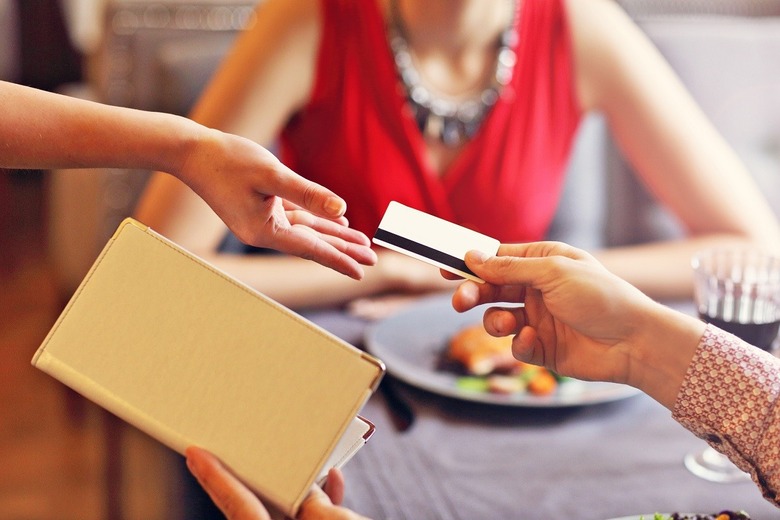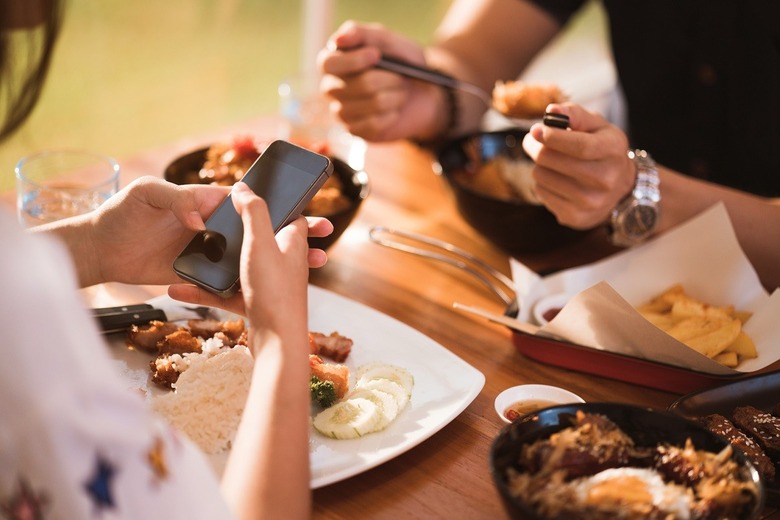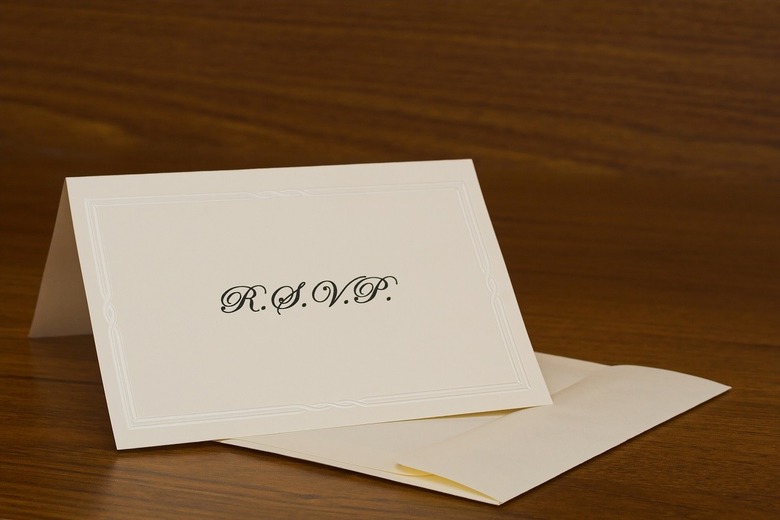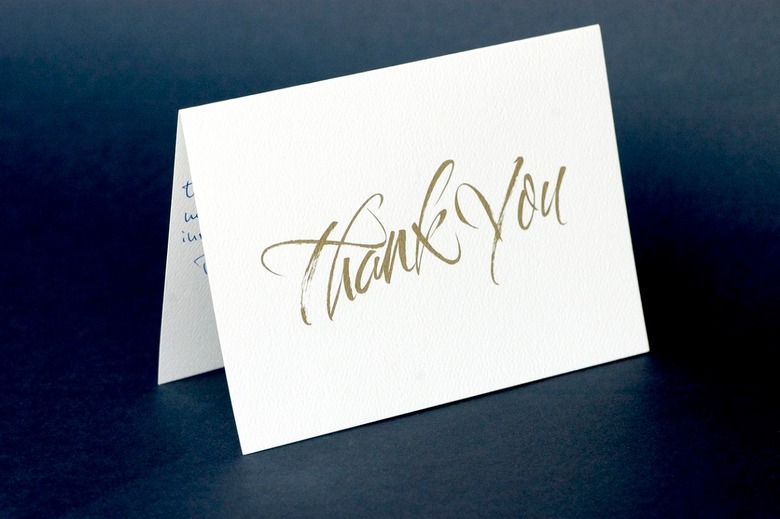Etiquette Lessons Your Grandma Wishes You Knew
Ask most people who the leading etiquette expert in their lives is, and they're likely to say it's their grandma... The matriarch of the family is the one who will definitely correct your grammar and let you know that you should sit up straight and well, and she'll probably have an opinion about your table manners. Call her old-fashioned, call her strict or just call her Granny — she only wants you to be the best possible version of yourself, after all. And being the best person possible means you're going to be a kinder, more polite person.
So, what are some etiquette lessons your grandma wishes you knew? There's the obvious, like "respect your elders" and "say please and thank you," of course. But there are also lesser-known rules of etiquette from days gone by that include a number of ways in which you can be more considerate to others.
From knowing who should pay for a meal to knowing how to compose a meaningful, genuine thank you note, these are the 10 etiquette lessons your grandma wants you to know.
Who Should Pay for a Meal
If you're on a date, some may say that the man should always pay. But that old-school rule is a bit sexist, if you ask us. So who should pick up the bill? Whoever initiated the date! The person who asked the other out technically extended an invitation. After all, the dinner is a reflection of that person's wants: both wanting to spend time with the other person and wanting to eat at a certain place.
How to Behave at the Table
A quick guide to dining etiquette for the uninitiated: Don't eat before everyone has been served. Put your napkin soiled side-up on your chair when you get up from the table. Keep your elbows off the table. Pass the salt and pepper together. Take your time while eating. If you follow these rules, Nana will thank you.
Where to Put Your Belongings When at the Table
It's not just grandmas who are bothered — being on your cellphone when you're at the table is one of the easiest ways to be rude without even realizing it. So be a kind person and keep your phone in your pocket or in your purse. And speaking of bags, where should you put yours while eating? It goes under the table and between your feet.
What to Bring to a Party
You should always, always, always bring something to a party, whether it's a casual game night or a formal dinner party. You don't have to bring anything big. Just a bottle of wine, a six-pack of beer or a small token from your hometown (if you're a houseguest) will do just fine!
How to Dress for Formal Occasions
t seems like for formal occasions, such as weddings, everyone is always overdressed or underdressed. A quick guideline: Unless the invitation specifies otherwise (with white tie or black tie), there's no need to wear a tuxedo or a full-length gown. Most weddings and similar events will be formal or black tie optional, which meals men should wear a dark suit with a tie and women should wear a dressy suit or formal cocktail-length dress.
How to RSVP
You have less time than you may think to respond to an invitation — it's actually just 24 hours! Of course, if you need to check your calendar, don't be hasty. Just let your host know you received the invite and that you will let them know whether or not you'll be attending as soon as possible.
How to Write a Thank You Note
Oh, the thank you note. As a kid, these short letters were often dreaded, but they really are a necessary thing if you're trying to learn how to be a more polite person. So after receiving a gift, be sure to send a thank you card out with a greeting, a genuine expression of gratitude and small personal details. You want to try to get a thank you note out within a month of receiving a gift.
When to Offer Your Seat to Others
Grandmas will be the first to tell you: If you're able-bodied and sitting down on the bus or train, you should offer your seat to someone less fortunate. Always be sure to offer your seat to the elderly, pregnant women, differently-abled people and children.
How to Make Small Talk
No one likes a lull in the conversation, so be sure you know how to keep things lively. How do you make small talk? A few tips: Have topics in mind, ask questions but don't drill others and listen. The best conversationalists are also exceptional listeners.
How to Answer the Phone
Listen, we get it. You text, you don't necessarily talk on the phone all that often. But knowing proper phone etiquette is still super important. Don't say "sup?" or simply state your name when you answer the phone, say "hello." Better yet? Say it with a smile! If you smile when you answer the phone, your greeting will be sunnier and happier from the get-go. And now that you know these etiquette practices, we bet you want to know the answer to more puzzling etiquette questions.
More From The Daily Meal:
25 Secrets to Being the Best Party Guest Ever
10 Little-Known Etiquette Rules You're Likely Breaking
Don't Break These Unspoken Rules as a Houseguest
These Are the Worst Etiquette Mistakes You Can Make
15 Ways You Didn't Know You Were Being a Terrible Party Guest










